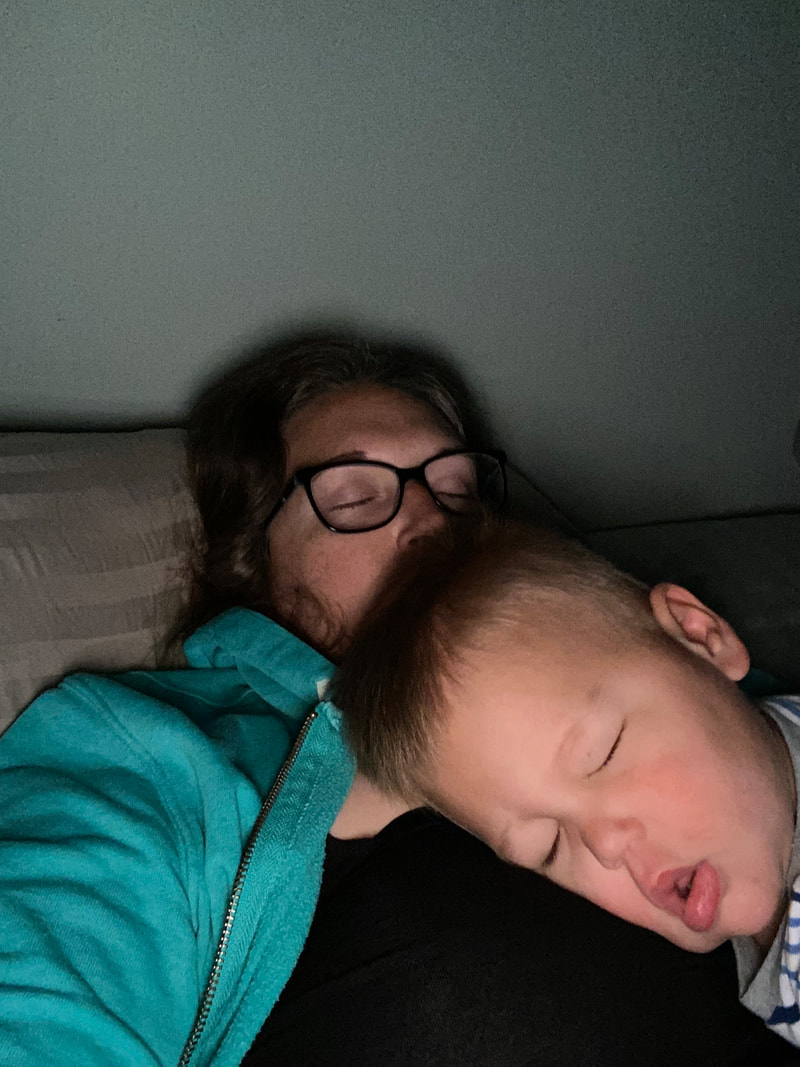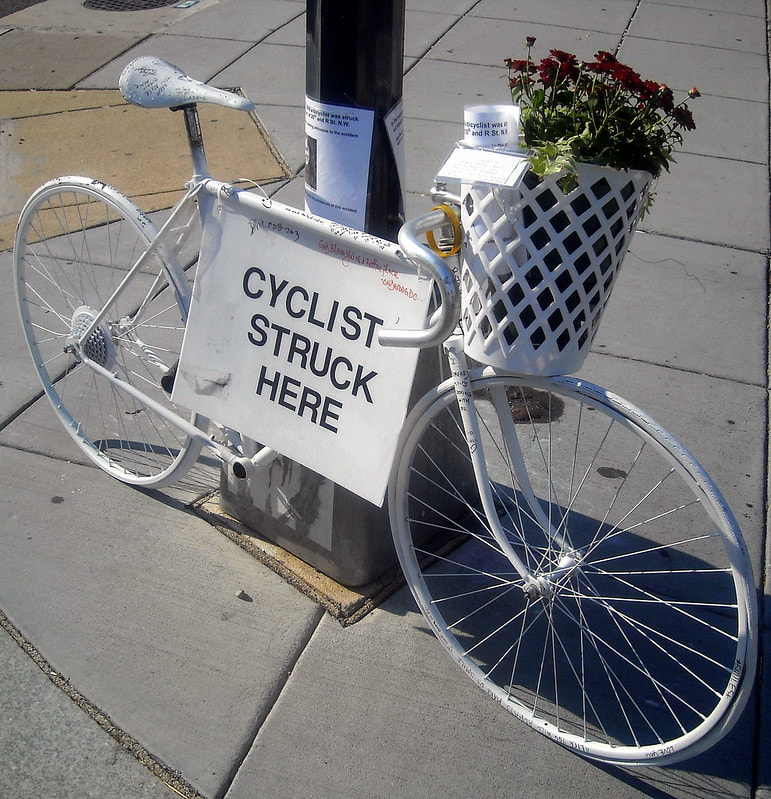|
Writing is so easy. You just put words on a page, and as long as they sound nice next to each other, you're doing great. If it sounds good and makes sense to the reader, do you really need to do anything more?
Yes. Yes, you do. Because there is a big difference between intelligible writing and good writing. I come from a science background. While I apparently used to write a whole lot when I was in middle and high school, most of the writing I did after my frontal lobe developed was in the form of lab reports and... well, more lab reports. I can string words together with the best of them, but I wouldn't call myself creative. As an adult, I've written things like school handbooks and student spotlights and even website copy, and I've done a fine job. I've even been complimented on my writing, which is funny because I'm basically just talking onto a computer screen. But it's one thing to detail the materials and methods for a science experiment or detail the varied accomplishments of a ninth grader. Writing words that evoke emotions and get readers invested in your story is an entirely different thing. It's the difference between grabbing a magazine, reading a paragraph, and tossing it back on top of the stack, and rushing home after work so you can cozy up on the couch with a blanket on your lap and your book in your hand. I don't know if I've ever finished a magazine article. There are books on my shelf I've devoured in a handful of hours. Best I can estimate, the difference comes down to description. How the writer describes the setting, the events, the character's feelings and reactions, makes a huge difference in the way we connect with the writing. Am I reading a list of details, or am I experiencing them the way the character would? Am I reading the way the character felt, or am I feeling it for myself? The closer I can get to experiencing exactly what the character does, the more connected I feel to the story and the more likely I am to finish whatever it is I'm reading. I wrote an essay recently for entry into a competition. I spent a good deal of time on it. It was good. I got really great feedback on it from my beta readers (read: a handful of friends who are gracious enough to read my drafts and encourage me through all my self-doubt). But I knew there was something missing. A writer friend and my favorite editor of all-time gave me the push I needed. "It needs to be more vulnerable." How do I do that? I bring the reader along with me. Instead of telling the reader I felt frustrated, I needed to describe the feeling that frustration gave me: "Rage sweeps through my veins and it’s only because of the effort it took to get three children to sleep at a reasonable time that I don’t explode ten years of frustration all over the room..." Rather than telling the reader how anxious I get leaving my kids with someone while I work, I get specific: "Do the kids have all their school supplies? Is the baby crying too much? Eating too little? When there’s an issue with one of the children, or with the babysitter, I leave and come home." I didn't talk about the cold leather sofa where I was sitting. I used details of the sofa in my story to bolster the emotional resonance I was describing: "I blink, and tears roll down my cheeks, soaking into the blanket I’ve wrapped around myself. Worn leather stretches between us in a gulf so wide we might as well be on opposite sides of the world." I watched a video from one of my favorite writers and humans, Rachael Herron, yesterday, that aligns pretty perfectly with this aim: Get Rid of the Word Felt. When you're telling the audience how you (or a character) felt (or what they thought, realized, smelled, tasted, etc.), you're increasing distance and decreasing empathy between reader and character. "I smelled chocolate" might become, "I inhaled great gulps of the aroma from the nearby chocolate factory every time I surfaced for a breath." "Lucinda felt a sharp crack at the base of her skull" could instead be, "A sharp crack at the base of Lucinda's skull sent her vision into darkness." You get the picture. Readers, don't think about this too hard. I'm famous for ruining reading with all my talk about writing craft, but I don't want that happening to you. However, if you find yourself immersed in someone else's writing, I can bet part of the reason is that they've allowed you to get nice and close with the character. Writers, think about this quite a bit. If you're writing something other than a scientific paper, I am willing to bet your work could benefit from a quick pass for closeness. A few small tweaks might be all you need to take your reader by the hand on your journey rather than making them sit in the audience. As always, I would love to know your thoughts as readers and writers in the comments below! (Oh - did I mention, that essay won an award? Casual.)
2 Comments
Six twenty-three in the morning. I lie in bed, motionless. My husband snores softly from the opposite edge of the king-size bed. Between us, the baby’s breath has settled into that deceptive rhythm that teases me into believing maybe I’ll be able to sneak out and get some work done after all.
I slide my hand out of his grasp and he moans. But it’s a sleepy moan, I tell myself. There's still hope. I move my leg away from him, preparing to slide down the side of the bed and onto the floor. He throws his entire body onto my chest, an adorable and infuriating answer to my Hail Mary attempt to, just for a half-hour, exist as a complete entity unto myself. My watch is heavy on my wrist; my glasses signal to my eyes, even in the barely-breaking light, that we’re up. But my arms are pinned under and around 35 pounds of warm, sweet frustration. All I can do is think. It’s the most inhumane torture I can imagine, thinking all the words in the world with no way to get them out of me. All these fantastic ideas, whooshing in and out of my brain, and nowhere to capture them. That’s the curse of the writer: some of our best words slip right through our grasp, no matter how committed we are to holding on. I set my alarm to 6:00 this morning, thinking surely I would be able to fit in something before the kids woke up. In the last few months, I’ve gotten really good at modularizing my time, only taking on a task I know I can finish in the time I have at my disposal. Ten minutes? Social media post. Half-hour? Newsletter. Naptime-worktime? Blog post, maybe an article. Full-day? Bahahahaha! Who am I kidding? I can’t remember the last time I had a full day of writing. Probably before the baby was born, 18 months ago. But even those predictable, bite-size chunks assume that the time I think I have, is the time I actually have. And when I open up the computer at 6:10 and my child wakes up at 6:20, I haven’t even gotten a chance to log on to all my services before I have to cast aside my list and go tend to someone else’s. “Could you get up early and work before the baby wakes up?” my husband asked me once. He was trying to be helpful, optimistic. After all, he gets up early and does his own morning things before the kids are up. But that is never the way it has worked for me, and nearly all the days of the last few months have provided stacks of evidence to support that fact. He got frustrated with me then, saying it seemed like I was giving up and dismissing the idea out of hand. But I wasn’t. I was being realistic. Maybe he can count on that time, but I can’t. And as soon as I start to, I am disappointed and angry and resentful because, more often than not, it gets taken from me. As I lie here in bed, plans to work thwarted yet again, I respond to that gentle snore with a silent “I told you so.” I guess I’ll try again tomorrow. On May 1, 1994, a crash at Italy's San Marino Grand Prix killed Brazilian Formula One driver and three-time world champion, Ayrton Senna. The day before, fellow driver, Roland Ratzenberger of Australia, died during qualifying at the same track.
Prior to this weekend, it was a given that anyone who got behind the wheel of an F1 car was putting his life on the line. That might sound hyperbolic, but a look at the list of Formula 1 fatalities will show that there was an average of 1 death each season for decades prior to this fateful weekend in 1994. The sport attracts the best drivers in the world, but there are only 20 of them. So if you took a spot on a team back then, you had a 5% chance of dying at work. After Senna's death, the sport did a ton of research into improving the safety of the cars, the tracks, and even the racing suits the drivers were wearing. There are penalties for driving unsafely, and generally the guys understand the gravity of what they're doing and their responsibility to each other. Nowadays, you can watch a race and be reasonably certain everyone will stay safe. It's this I was thinking of as, once again, I was grazed by someone's side mirror as they passed inches from my bike yesterday. I've been riding a lot this season - more than any year since I was doing triathlons back in my pre-marriage, pre-kid days. And I love it. The fresh air in my face as I glide downhill, the feeling of freedom and a 160 average heart rate, the smells of nature and fresh-cut grass. But as I ride past the marshes and cemeteries, the parks and business complexes, I can't help feeling that by getting on the bike, I am accepting the possibility I might be killed or seriously injured. How messed up is that? A few weeks ago, I was riding along next to traffic when a driver in an SUV took a right turn into the library and almost flattened me. I didn't even have the chance to yell or otherwise get her attention; I was too focused on not ending up under her tires. And did you hear about the 16-year-old in Texas who bowled over a bunch of cyclists training for an Ironman? He went home from the scene with his parents and, to my knowledge, no charges have yet been filed. I have a number of friends, teammates, and acquaintances who have been killed or had to spend months rehabbing broken pelvises, elbows, and legs following encounters with vehicles. In fact, in 2018, more than 800 cyclists died in encounters with motorists. And it's not because cyclists are daredevils. The problem comes down to the toxic individualism and lack of empathy that pervades our society. So many people have come to believe they take precedence over all else. Their text or social media notification needs to be attended to now, never mind the danger it presents. They push the burden of awareness to the cyclists, even though a motorist has much more potential to injure a rider than the other way around. Despite laws put into place to give cyclists equal standing to vehicles on the road, drivers of cars too frequently see themselves as more important than the bike rider next to them. They can't be bothered to give space, or to wait for oncoming traffic to pass so they can give a wider berth to riders. And, sometimes, people are downright evil. What kind of person deliberately chases down a bike rider so they can engulf them in a cloud of black exhaust, or drives inches away when there is plenty of space and the bike is already churning bits of glass and gravel on the shoulder? A person who believes some people are more worthy of life than others, that's who. Every time I click my shoes into my pedals, I am forced to trust the people with whom I "share the road" (a term I use quite generously indeed) to revere my life as much as they do their won, which, as we've established, isn't something we can take for granted. So, while I watch car races every weekend where if a guy crashes into a barrier at over 100 mph he can get out and walk away, I mount my bike hoping someone doesn't send me flying because they couldn't wait to get home to respond to a text about their niece's baby shower next weekend or because they simply thought it'd be cool to watch me eat shit on the side of the road. I do everything I can to keep myself safe, and maintain a superhuman amount of vigilance when I'm riding. But I can't put a titanium bubble around myself on the bike, like the F1 teams started doing in the years following Senna's death. So I need you to work with me. I promise it won't require much from you. When you see one of us on the road, just give us a little space. Hang out behind us until there's enough room to get by. Pay attention when you're driving. Most of the time, if you get distracted and swerve off the road for a moment, nothing will happen. But if, at that same moment, I happen to be next to you, you could be condemning my family to a life without me. My kids could grow up without a mom. My husband could become a widower. My parents could outlive their only child. It's not worth it, and it's easily preventable. We're all in this together. Can I trust you to keep me safe? |
Nicci KadilakI'm the boss around here.
Archives
January 2023
Categories
All
|




 RSS Feed
RSS Feed